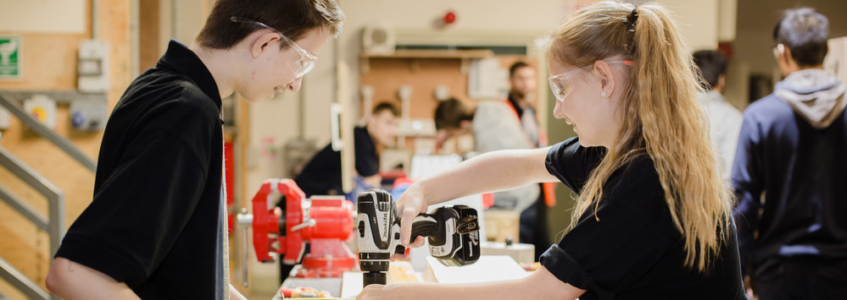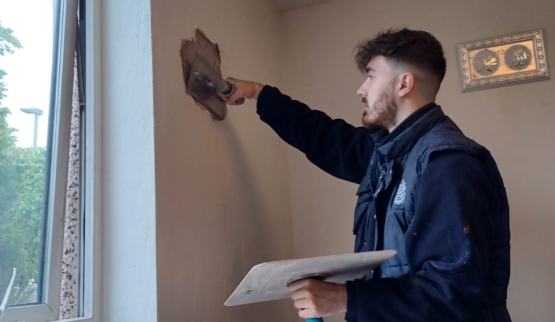With a recognised trade qualification under your belt, there are plenty of career opportunities in the housebuilding industry, as Alan Cadenhead, Group HR and Employee Development Manager at Miller Homes explains.
Whether you’re a school leaver or looking for a change of career, going to college is an exciting step. If you’re planning to learn a trade, you may already be thinking about what you’re going to do afterwards.
Some people choose to be self-employed or start their own business. Whereas, others prefer to be part of a bigger team, helping to complete large-scale projects for national building firms. Even though housebuilders will directly employ some tradespeople, including bricklayers, quite often the site team will be made up of contractors working for local, regional or national companies.
Here are some of the courses you can take at Leicester College to help you work your way up in the housebuilding industry.
Bricklayer
As you’d expect, skilled bricklayers are in high demand with housebuilding companies. They often have several large developments on the go at once. If you’re new to the trade, you’ll complete City and Guilds level 1 and 2 at college, over two years. You will learn how to mix and apply mortar to create a perfect finish. You’ll also have the chance to gain on-the-job experience, either through an apprenticeship scheme or on work placements.
Once qualified, you will be ready to apply for jobs with your chosen employers. This is providing you hold a Construction Skills Certification Scheme (CSCS) card.
Plasterer
An important stage in home building is plastering each of the rooms so that the walls and ceiling can be painted and the flooring fitted. With so many homes to complete, plasterers can expect a good supply of work on new developments, as long as you hold the relevant qualifications. Plastering is also taught at City and Guilds level 1 and 2. You must also have a keen eye for detail and can ensure a smooth finish.
Joinery and carpentry
If you like the idea of seeing a house being transformed into a home, then a career in joinery and carpentry could be for you. Depending on the type of property you’re working on, you are likely to be fitting staircases and bannisters, skirting boards and coving, and boxing in fixtures such as pipes and radiators. As with bricklaying and plastering; precision skills are a must so that your work meets the standards expected by your employer and its customers.
Joinery and carpentry are taught at City and Guilds levels 1 and 2 at which stage you would move into the workforce.
Plumbing and gas
These are two closely linked jobs. Plumbers are mainly responsible for installing pipes, toilets and showers. While gas engineers tend to fit heating systems, boilers and cookers. You’ll start with the basics, like plumbing science and preparing a site. A plumbing and gas course provides the skills you need to get your first job in the industry.
After completing any of the above courses, or if you have already spent a number of years working in the industry, you may choose to continue training with a level 3 National Diploma or university-level course in Construction and the Built Environment, which could lead to a career in site management, surveying or technical.
Health and safety
Every trade course includes training on how you and your colleagues can stay safe and avoid accidents on site. You could improve your job prospects with further training in first aid and health and safety.
Next steps
Of course, whatever trade you choose, remember that there are plenty of career progression opportunities in construction, with the longer term prospect of working your way into management. The skills and experience you gain on site, in whatever trade you choose, provides a solid foundation to progress your career with a housebuilder. Careers you can progress to could be a Trainee Assistant Site Manager, a Site Manager, a Contracts Manager or a Production Director. These jobs usually involve co-ordinating teams of tradespeople, so knowledge of their industry is a real bonus.
If you are interested in property, but don’t necessarily want to work on site, remember that housebuilding companies have a huge variety of roles including in customer service, sales, marketing and HR.
For more information on working at Miller Homes, including the latest vacancies and apprenticeship opportunities, visit www.millerhomes.co.uk/corporate/careers.

























